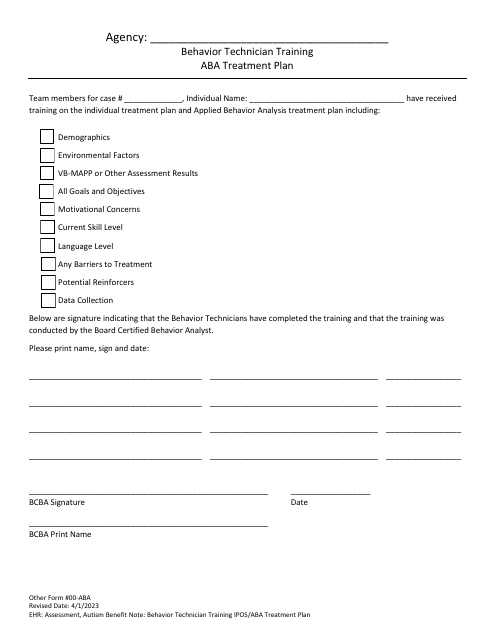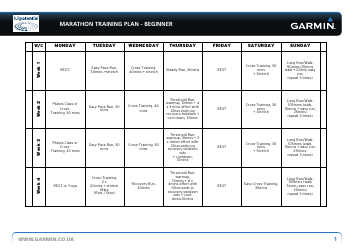Behavior Technician Training Aba Treatment Plan
Behavior Technician Training ABA (Applied Behavior Analysis) Treatment Plan is designed to prepare individuals to handle challenges associated with individuals, particularly children, diagnosed with Autism Spectrum Disorder and similar conditions. This plan equips trainees with proven techniques to encourage positive behavior and diminish harmful or disruptive behavior.
It includes specific strategies on how to assess a person's behavior, develop measurable goals, implement practical behavior modification strategies, and monitor progress. This type of training is critical for professionals like behavior technicians, teachers, counselors, and healthcare providers who work with individuals who have behavioral disorders.
They get trained to use scientific techniques to improve socially significant behavior by understanding the behavior's relationship with the physical and social environment. This forms a crucial part of ABA therapy, which is widely recognized as an effective treatment for autism.
The Behavior Technician Training ABA (Applied Behavior Analysis) Treatment Plan is typically filed by a Board Certified Behavior Analyst (BCBA) or a registered behavior technician (RBT). These professionals specialize in providing ABA therapy for individuals with autism and other developmental disorders. This document outlines the goals, methods, and procedures of treatment for the individual receiving therapy. It is often filed with insurance companies, healthcare providers, schools, or other agencies involved in the individual's care.
FAQ
Q: What is a Behavior Technician?
A: A Behavior Technician is a professional who implements applied behavior analysis (ABA) treatment plans for individuals, often children, with behavioral disorders such as autism. They collect data on the patient's progress and provide feedback to the lead therapist or Behavioral Analyst.
Q: What kind of training does a Behavior Technician need?
A: A Behavior Technician typically needs to complete a 40-hour training program that covers the principles of Applied Behavior Analysis. Many also pursue the Registered Behavior Technician (RBT) certification from the Behavior Analyst Certification Board. Some positions may also require additional education or a degree in a related field like psychology or education.
Q: What is an ABA treatment plan?
A: An ABA (Applied Behavior Analysis) treatment plan is a detailed program designed to address and modify certain behaviors using the principles of ABA. This could involve improving social skills, communication, reading, and adaptive living skills, like hygiene, performance in school, punctuality, and job competence.
Q: Who is involved in creating an ABA treatment plan?
A: An ABA treatment plan is typically created by a Behavior Analyst or a psychologist who specializes in applied behavior analysis. It can also involve the input of other professionals like occupational therapists, speech therapists, teachers and, importantly, the patient's family.
Q: How effective is ABA therapy?
A: ABA therapy has been clinically proven to be effective in a variety of situations and is commonly used for treating individuals with autism. By targeting specific behaviors and teaching positive alternatives, ABA can lead to meaningful changes in behavior. It's important to note that the effectiveness can vary depending on the individual and the consistency of therapy.
Q: Who can benefit from ABA therapy?
A: ABA therapy is commonly used for treating individuals with Autism Spectrum Disorder and other developmental disorders - from toddlers to adults. It can also be used for people with behavioral problems, such as acting out or self-harm behaviors. Efficacy of ABA is seen in improving communication, social relationships, and school performance. It can also benefit those who need to develop life skills like grooming, toileting, and dressing.
Q: How long does ABA Therapy last?
A: The duration of ABA Therapy can vary greatly depending on the individual needs of the person receiving treatment. It can range from a few hours each week to 40 hours or more. Typically, an early intensive behavioral intervention involves 20-40 hours per week.


